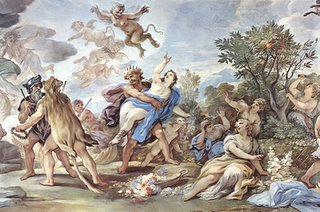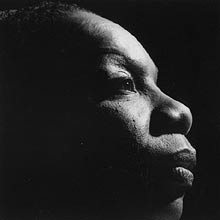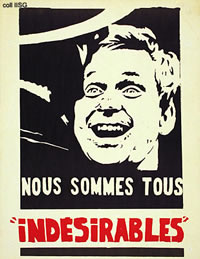Dr. Stanley Fish for his New York Times editorial
A Cartoon in 3 Dimensions: Our Faith in Letting It All Hang Out. This is not a free article, so let me share my free commentary below.
Just in case you thought the ideals of liberal democracy were the evolution of careful thinking and planning carried out over generations by the best minds of Enlightenment Europe and established in this nation only with much bloodshed and courage on the part of ordinary men and women, with extraordinary minds, and the leadership of a potent group of some of the strongest intellects ever to assemble in any part of the world at any time in history...Just in case you appreciated the accidents of history and fate that created the conditions for this liberal democracy to erupt on North American soil by finally breaking the bonds of servitude to a mad raving lunatic King George, and to open its shores to a world of immigrants for over 200 years, many of whom repeated the original accomplishment of our nation’s founders...Just in case you thought more of your political and religious freedoms, personal dignity, economic opportunity, and your inalienable rights to life, liberty, and the pursuit of happiness, than to derisively write them off as nothing more than a vacuous, inane, and morally relative “liberal religion”...Just in case you treated the hopes you invest in the US Constitution for your situation in life with any amount of reverence,
literary critic and Florida International University Professor of Law Stanley Fish would like to disabuse you of that notion.
On the whole, Stanley Fish is a thinker with some good ideas, some of which I share, and one of which is that university professors should not use their posts to propagate political dogmas and contrarian attitudes on a political spectrum. But outside the classroom, Fish lets his contempt for the rest of us really sizzle. Here’s Fish from his February 12
th editorial:
“The first tenet of the liberal religion is that everything (at least in the realm of expression and ideas) is to be permitted, but nothing is to be taken seriously...strongly held faiths are equally and indifferently authorized (????) as ideas people are perfectly free to believe, but they are equally and indifferently disallowed (????) as ideas that might serve as a basis for action or public policy.
Should one of (the strongly held faiths) ask of us more than we are prepared to give -- ask for deference rather than mere respect -- it will be met with the barrage of platitudinous arguments....One of those arguments goes this way: It is hypocritical for Muslims to protest cartoons caricaturing Muhammad when cartoons vilifying the symbols of Christianity and Judaism are found everywhere in the media of many Arab countries. After all, what's the difference?
The difference is that those who draw and publish such cartoons in Arab countries believe in their content; they believe that Jews and Christians follow false religions and are proper objects of hatred and obloquy.... for (Arabs) the content may be life itself.... the difference, I think, is to the credit of the Muslim protesters and to the discredit of the liberal editors.”
I personally think much of Arab and Middle East culture is gorgeous. But the Arabs of Fish's article and of this episode are Muslim fundamentalist extremists: they get no credit from me except for rational complaints about US foreign policy in the Middle East. To be blunt to Stanley Fish, he overplayed his hand and showed us the cards he’s holding: the fantasy at the core of his screed is there in his own words: “deference” to fundamentalist believers - the content of whose faith “may be life itself.”
Fish exemplifies a class of mentally, emotionally, and spiritually depleted academics who exalt the exotic Muslim fundamentalist because “he believes” and because of the content of his faith may be “life itself.”
This fetish is the work of capture bonding on the academic mind. Stanley Fish is writing like a man whose mind is captured by an exciting and fiery faith, felt more nearly and deeply than his own, that makes the domestic ideals of the rational Enlightenment seem dull and uninteresting to him, even worthy of contemptuous caricature. As a next step,
Fish could eagerly accept his second class status as Dhimmi in a tribe of true believers, and he seems to think we should accept ours too: he closes his article by evoking a contest of wills between Muslim Fundamentalism and Liberal Democracy and nearly dares us to abandon our “faith” in (his caricature of) our “liberal religion”:
“...a firm adherent of a comprehensive religion doesn't want dialogue about his beliefs; he wants those beliefs to prevail. Dialogue is not a tenet in his creed, and invoking it is unlikely to do anything but further persuade him that you have missed the point -- as, indeed, you are pledged to do, so long as liberalism is the name of your faith.”
This the best that Nihilist academics can offer us...tie our hands with accusations of moral relativism, exalt the fundamentalist, celebrate a contest of wills, and dare us contemptuously to lose our nerve.
Liberal Democracy deserves more from our academics. In my next post, I point to a thinker with ideas for what we can do to get ourselves out of this UNHOLY MESS that Bush and neoconservatism have gotten us into.









